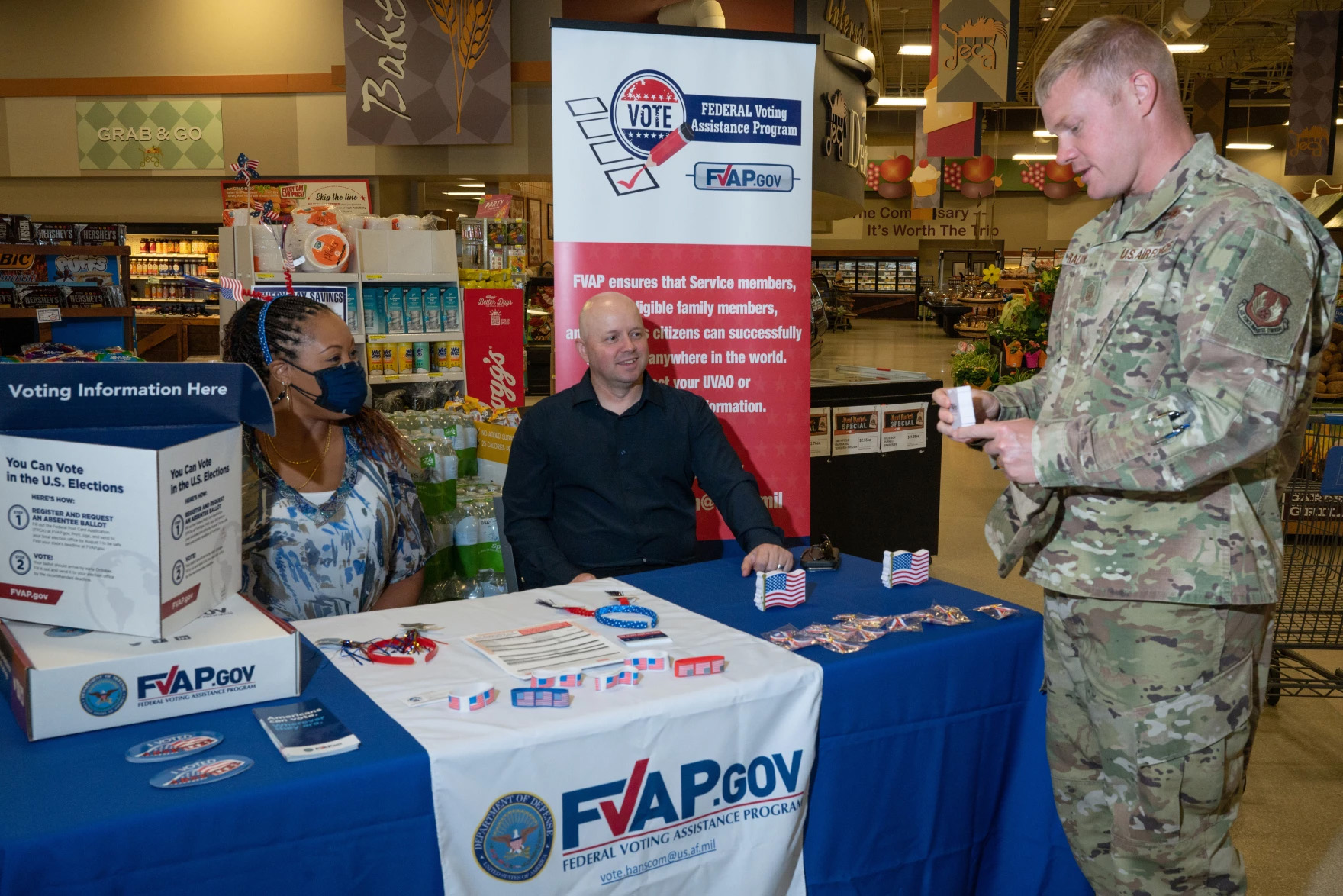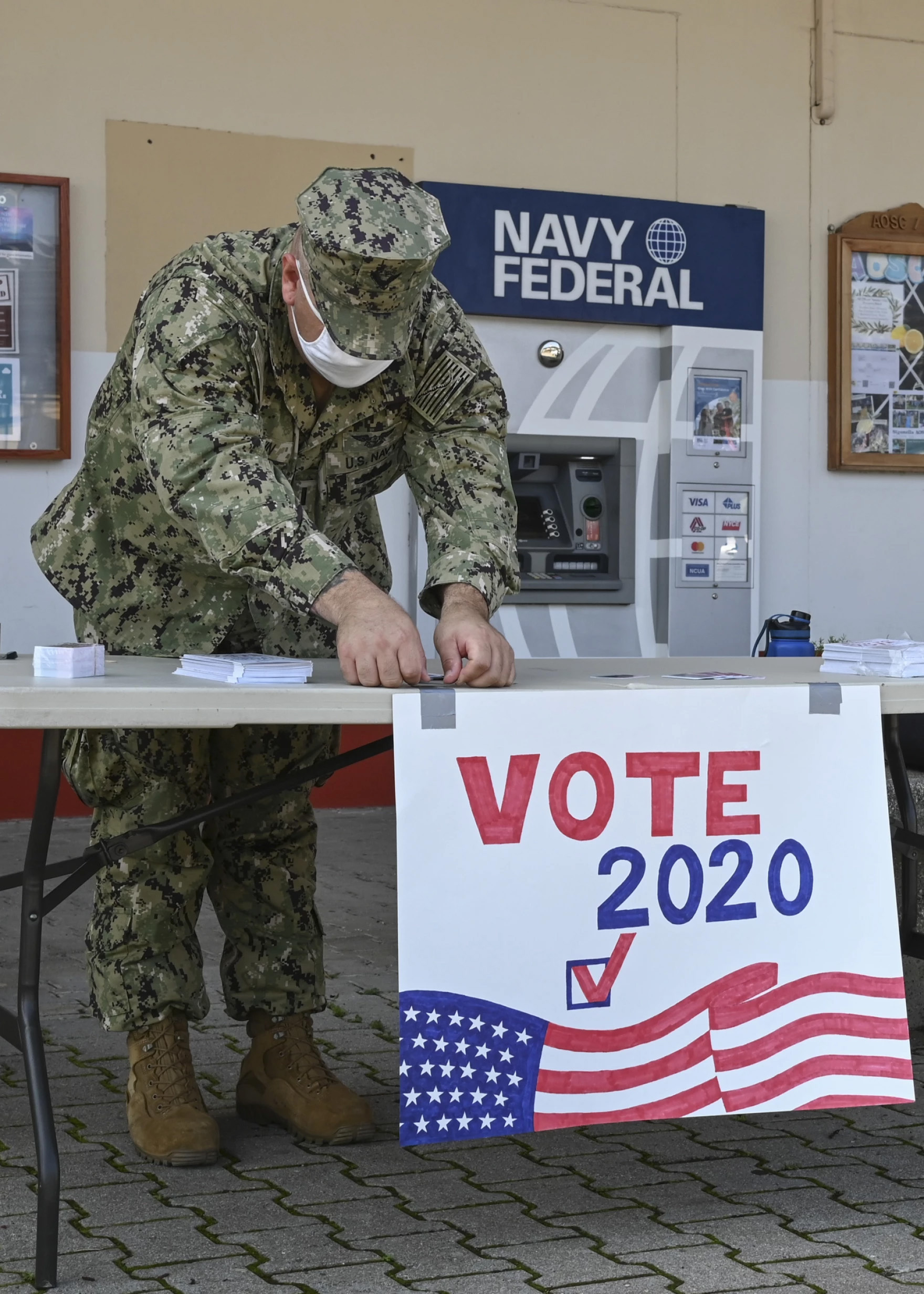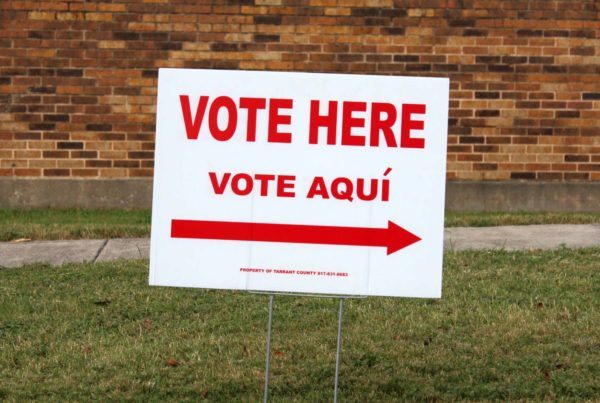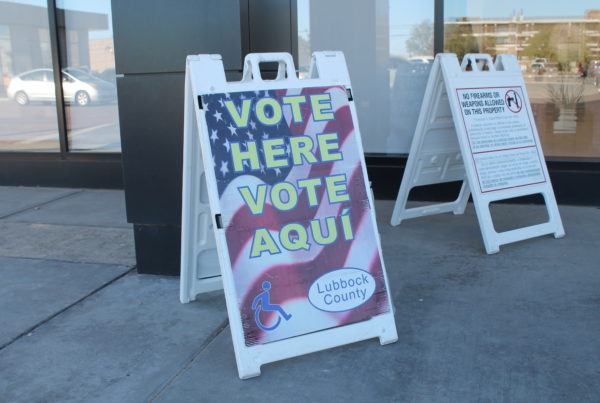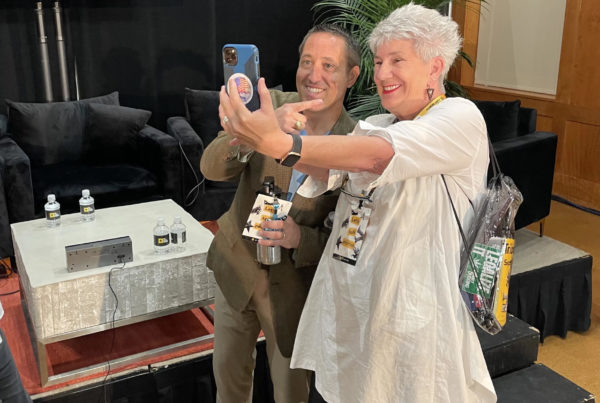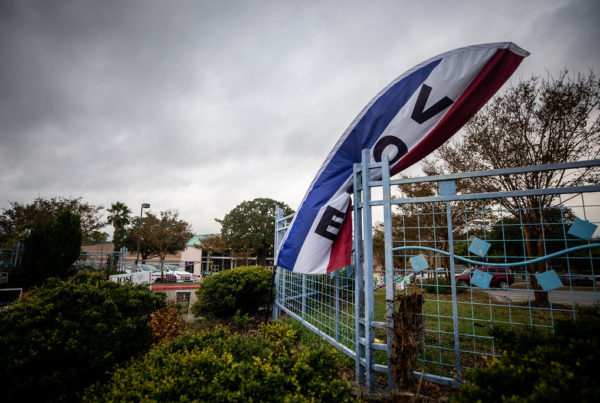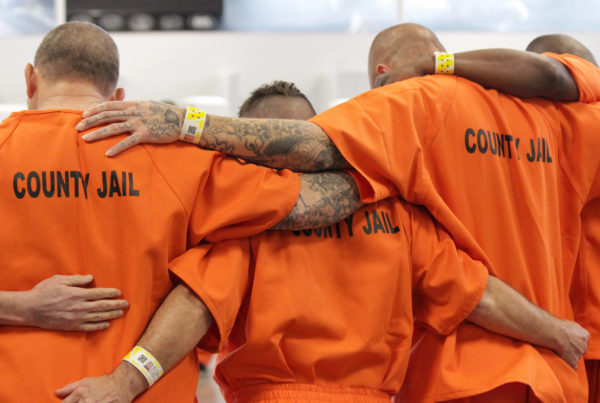This year’s midterm elections come ten years after Congress passed new laws and some states adopted more technology to make it easier for military members to vote, and that’s having a positive effect on getting troops’ ballots counted.
In the 2008 election, 91% of all absentee ballots from civilians were returned successfully, but only 50% of absentee ballots from overseas military members were counted.
That led Congress to pass a law that set requirements for states and their voting authorities – usually counties – to make voting easier for military members. The measures require ballots to be ready 45 days before an election.
“The primary purpose for that was to allow the state to get an absentee ballot overseas, give the person time to fill it out, and then have it mailed home,” said Donald Inbody, a Navy Veteran and the author of The Soldier Vote: War, Politics, and the Ballot in America.
Inbody said lead time is important, especially because states are very inconsistent on when ballots have to be returned.
“Some states allow ballots to come back 10 days after the election, others require it to be there the day before or the day of the election,” Inbody said. “It’s a confusion of rules that make it difficult for the average soldier or sailor to get it figured out.”
The 2010 election saw an almost immediate improvement, with only 33% of overseas ballots coming back too late. But a Congressional committee found that number still too high.
Nowadays, states are supposed to mail paper ballots sooner. And a handful have implemented online voting for overseas troops. Missouri features an online portal that allows troops to receive and submit their ballots electronically.
“If a military or overseas voter is in a hostile zone, they can utilize the portal to return their ballot,” said Chrissy Peters, Missouri’s Director of Elections. “If they are choosing to receive their ballot via email, they can return it with that method as well.”
While not all states go to that length to help military members vote, the latest numbers show the percentage of military absentee ballot rejections is down to single digits.
Making it easier for military members to vote is generally popular among politicians, even among Republicans who generally support tightening voting access for the general population in the name of security.


